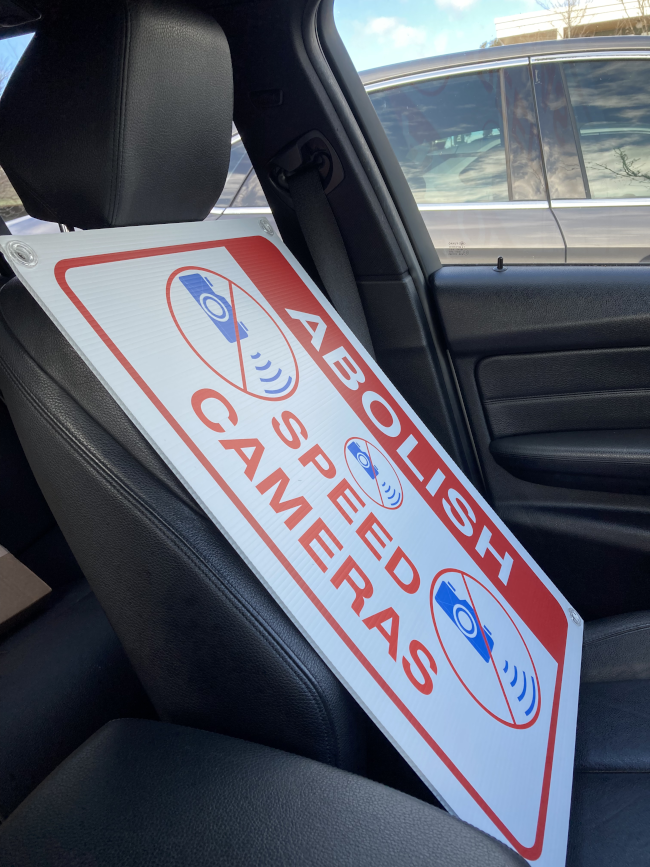It was announced this morning that Denise Bartlett, the wife of legendary AFL figure Kevin Bartlett, had died.

(Denise and Kevin Bartlett. Image credit: 7News)
Denise had been unwell for a few years and it was clear that this had been taking a toll on Kevin, who is widely regarded as one of the nicest people in AFL circles.
Kevin Bartlett was a legendary player for the Richmond Tigers and later became a commentator, calling many games for Seven throughout the 1990s and Fox Sports after that. He also called football on radio for SEN where he was the long-time host of the morning show Hungry For Sport, a play on his nickname “Hungry” from his playing days. In more recent years Kevin moved to 3AW as a commentator, but when Denise fell ill, Kevin took a step back from commentary to look after her, which was a great loss to football. On the odd occasion that Kevin did return to the airwaves, it was clear that his wife’s struggles were taking a toll on him too.
Kevin and Denise had been married for 54 years. She was as well-regarded around the Richmond football club as Kevin himself. While football had been Kevin’s life for the most part, Denise was his rock.
I’m sure that Kevin has many wonderful memories of Denise, and I hope that these memories can bring him comfort at this time.
Samuel
March 19th, 2024 at 05:26pm
Here in Canberra, just as in many other parts of the country, there are speed camera vans which can be setup in a wide variety of locations to measure the speed of passing vehicles and issue speeding fines. Here, these are operated by ACT Government employees unlike some other jurisdictions where the operation is outsourced to private contractors. The ACT’s vans are white and have a retractable sign on the roof which states “your speed has been checked” but are otherwise fairly unremarkable vehicles.
I am strongly opposed to the existence of these, partially because I believe most speed limits should be abolished, but moreso because I believe they deny natural justice by:
1. Removing the element of discretion from the enforcing officer
2. Making it impossible for the driver to know with any certainty whether a fine will be issued, as the fines take weeks to be issued and delivered, thus removing some of the driver’s ability to contemporaneously collect and preserve evidence for their defence
3. Reverse the onus of proof, by requiring the registered owner of the vehicle to prove that they either weren’t speeding (practically impossible if they don’t have the opportunity to collect evidence at the time) or they weren’t the driver involved; in a society where a person is supposed to be presumed innocent until proven guilty beyond a reasonable doubt, there are grave problems with the processes of the speed camera van system.
There is also an issue that is not confined to the speed camera vans but more broadly of the infringement notice system which is used by the speed camera vans among other government agencies, that the receiver is coerced into accepting the fine rather than defending it in court by virtue of the infringement notice fine being substantially less than a court could impose. It is effectively a coercive tool to make people admit guilt by offering them a smaller punishment, and for many people it is simpler to just admit guilt, even if they don’t believe they were guilty, rather than go through the process of defending the charge when the system will effectively treat them as guilty until proven innocent.
I also believe that the speed cameras are not an effective road safety tool as they don’t do anything to correct driver behaviour at the time of the offence. In my view, only police officers should be able to conduct speed enforcement as they have the authority to stop a driver at the time, something which the speed camera vans can’t do, and police also have the ability to exercise discretion based on the circumstances at the time. I believe that speeding fine should only be able to be issued if police detect a driver to be speeding, and then make a reasonable effort to intercept the driver.
A couple years ago I decided to make my position on this matter known. Apart from writing a submission (which was largely ignored) to an ACT Legislative Assembly inquiry into road safety, I also had a sign produced.

When I saw a speed camera van and had the time to do so, I would set up an impromptu protest near the speed camera van, where I stood there waving the sign about. This received an overwhelmingly positive response from passing motorists.
Originally, and this is starting to get the point of why I’m writing this today, I was setting up somewhere in the line of sight of the speed camera van, partially obscuring the camera’s view of traffic. On the second occasion of this, the speed camera van operator called the police and they attended. The police officer asked me to leave the area. The ACT has a Human Rights Act which, among other things, protects the right to peaceful demonstration, so I wasn’t going to leave without the police officer providing a very good reason as to why they thought I had to do so. The police officer claimed that I was breaking the law by “hindering a territory official” which is quite a stretch considering that law was really designed to allow emergency services to go about their business without being obstructed, not to protect bureaucrats sitting in vans, and given I was not interacting with the speed camera van operator or preventing them from operating their equipment, it was unlikely that such a charge would hold up in court. However, it was likely that the police officer would take me into custody if I didn’t oblige and move on, so I moved on.
It’s also worth noting that if merely being in the line of sight of the camera between it and passing vehicles could be said to meet the criteria of “hindering a territory official” then every driver of a vehicle in the lane closest to the speed camera would be contravening this law by blocking the view of a further away lane.
Furthermore, the Human Rights Act’s protection of the right to peaceful demonstration applies unless a law specifically prohibits the activity. Standing somewhere with a sign is not an illegal activity unless a prohibition zone is created, which is what was done by the ACT Government in the streets near the abortion clinic in the city. It was necessary for the government to specifically list the areas in which protesting abortion were to be illegal in order to overcome the Human Rights Act. There is no legislation to create a prohibition zone in the vicinity of a movable object such as a speed camera van, so really, it was an empty threat to charge me with “hindering a territory official”.
Regardless, to ease tensions and keep the peace, on future occasions I moved my protests across the road from the speed camera vans, or occasionally opposite their headquarters in Hume at their shift changeover, so that I would not be in their line of sight of traffic. The speed camera van operators (apart from one) still don’t like it and I have even had one stop doing their work of their own volition to take photos of me and threaten legal action, but obviously what I am doing is perfectly legal and should be perfectly legal in a democratic nation, so nothing has come of it.
What brings all of this up at this point in time is that the Australian Federal Police, who provide police services to Canberra among other things, are about to embark on strike activity. They won’t be walking off the job as such, but will engage in various activities, one of which caught my attention as being relevant to my activities.
Union members voted on 36 potential actions which range from putting slogans on AFP vehicles and uniforms and blocking mobile speed vans, to not attending court matters, not transporting alleged offenders, and not investigating any referrals to the AFP from the offices of politicians where no offence has been committed.
Blocking mobile speed vans. In other words, demonstrating in a place which will block the view of a speed camera van. The very activity which they threatened to charge me over. There is no difference from a legal standpoint between them demonstrating for better pay and conditions in front of a speed camera van, and me demonstrating against speed cameras in front of a speed camera van. The only potential legal difference is that police officers have special powers not afforded to civilians, however the wording of the proposed strike action makes it clear that the officers are not considered to be working whenever they conduct their strike activity, so it cannot be argued that they are using special powers available to police officers at such a time.
The exact wording of the proposed action, as notified to the Fair Work Commission, is slightly less clear than what the writer of the news article has interpreted it to mean
21. The indefinite or periodic interruption of work for members to park police vehicles in front of speed cameras, at school zones and any Australian Federal Police related Government facility while displaying emergency lights.
It was suggested to me that “in front of speed cameras” could mean they’re a little down the road and slowing passing motorists with their flashing lights before the motorists would reach the speed camera. If this is the case, it is still a useful precedent for my activities as my current across-the-road approach tends to slow down traffic as it passes, which is exactly what the police strike action would do. Given the stated aim of the speed camera program is to reduce the speed of motorists, it is impossible to argue that my actions or those of the striking police officers are “hindering a territory official” when the actions in fact help them to reach their stated aim.
Regardless of how exactly the strike action plays out, the precedent set by the proposals alone is enough to confirm what I have believed all along. It is perfectly legal within the ACT to protest near a speed camera van, regardless of the reason for the protest, unless it happen to be a protest against abortion within a couple blocks of Moore Street in the city. So waving an “abolish speed cameras” sign is A-OK!
Samuel
March 19th, 2024 at 05:11am

